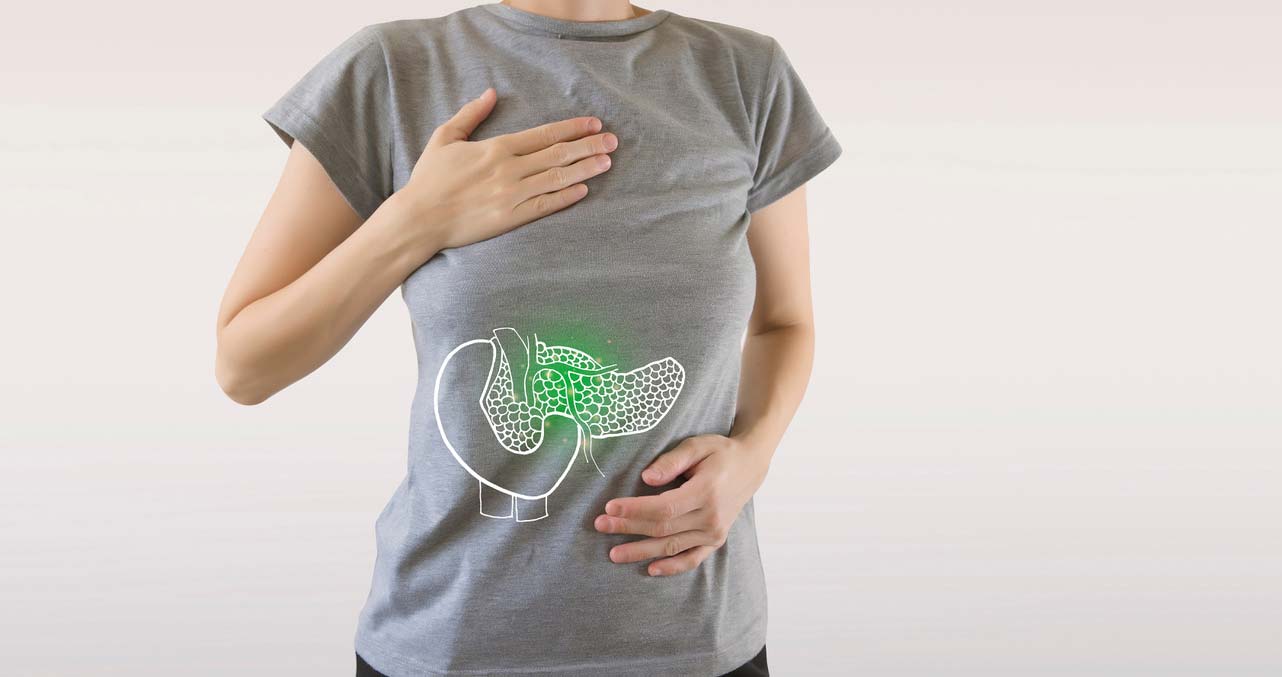Beat the Bloat: Your Guide to a Happier Belly

Bloating: the unwelcome guest that leaves us feeling uncomfortable, a tad more self-conscious, and sometimes in genuine pain. Ever wonder where bloating comes from, and more importantly, how you can show it the door? Keep reading to deflate the mystery of bloating and discover ways to smooth your gut once and for all.
Bloating 101
Bloating occurs when your gastrointestinal tract is overwhelmed, typically caused by excess gas. This backup leads to feelings of tightness or fullness in the abdomen and often forces the belly to protrude slightly. Usually, the expansion feels much more significant than it actually appears to others. There are several causes for abdominal bloating, including food, stress, hormones, and the speed at which we eat.
Apart from making us feel like we've magically gained weight in a matter of minutes, bloating can be genuinely uncomfortable. It often brings along friends like cramps, burping, and various other digestive discomforts, impacting our mood, confidence, and overall well-being.
Common Culprits Behind Bloating
Identifying the cause behind your bloating is the first step to being able to release the pressure valve. Here are the usual suspects behind bloating:
- Diet: It's no secret that high-fat and sugary foods can exacerbate bloating. So can fiber-rich meals and alcohol. These foods are harder to digest, causing your system to work overtime and produce more gas in the process.
- Eating Habits: How you eat can be just as important as what you eat. Overeating, eating too quickly, or indulging in rich, fatty meals can lead to digestive distress and, you guessed it, bloating.
- Swallowing Air: Believe it or not, swallowing air is a common contributor to bloating. Activities such as drinking through a straw, chewing gum, and enjoying carbonated beverages increase the amount of air entering your digestive tract, leading to that uncomfortable bloated feeling.
- PMS: For many women, monthly hormone fluctuations can cause the body to retain more salt and water (thanks a lot, estrogen and prostaglandins)! This retention often manifests as bloating in the days or even weeks leading up to their period, adding physical discomfort to the array of premenstrual symptoms.
- Stress: Yes, stress is a significant factor too. When stressed, your nervous system kicks into high gear and communicates with your gut, which takes on a fight or flight response of its own. Stress can lead to a range of GI discomforts, including bloating, nausea, cramping, and sometimes diarrhea.
- Constipation: Being constipated means more than just discomfort; it can also lead to bloating. When you're backed up, excess air can get trapped in your GI tract, making you feel like you're inflated like a balloon.
- Food Intolerances: If your body struggles to digest certain foods due to sensitivities, it can irritate your digestive system. This irritation often leads to bloating, among other symptoms, as your body reacts to the problematic foods.
Bloat-Inducing Bites: Foods to Watch Out For
Some foods challenge our digestive system more than others, and some trigger acid production and – you guessed it – bloating! Beans, lentils, certain fruits and veggies, sweeteners, dairy, and whole grains can all be party poopers. But this doesn’t mean these foods should be sworn off. Many bloat-inducing foods are packed with vital nutrients. Sometimes, your body simply needs time to adjust. Other times, you may benefit from eating smaller portions. Keeping a food journal can help you play detective on your digestive drama, pinpointing what exactly leads to your bloating episodes.
Deflating the Bloat: Practical Tips
- Mind Your Diet: Reduce intake of sugar and fatty foods.
- Eating Habits: Chew slowly, eat in moderation, and listen to your body.
- Stay Hydrated: Drink plenty of water to keep things flowing smoothly.
- De-stress: Embrace relaxation techniques to reduce anxiety and avoid shallow breathing that can lead to bloating.
- Anti-Bloat Supplements: Introduce dietary supplements to support digestion and intestinal flora, preventing gas buildup.
Natural Supplements: Your Allies Against Bloating
When it comes to combatting bloating, natural herbs and digestive enzymes can make all the difference. Carminatives like peppermint, ginger, and fennel are known to relieve bloating and soothe the GI tract from irritation and spasms. Introducing a dietary supplement as needed can help pop that belly bubble, restoring your comfort and confidence. Here are our top picks for anti-bloat supplements:
- Enzyme Complex™: For those who don’t produce enough digestive enzymes, these supplements can be a game-changer, aiding in digestion and nutrient absorption.
- Probiotics+™: The gut's best friends, helping balance your intestinal flora and keep your digestive system running smoothly.
- Digestion™: A symphony of herbs designed to promote digestive health and bid farewell to gas, bloating, and abdominal discomfort.
- Gastril™: A combination of activated charcoal, peppermint, fennel seeds, and ginger root team up to promote relief from gas and bloating.
Bloating doesn't have to be a daily struggle. With the right diet, mindful eating habits, stress management, and a little help from natural supplements, you can beat the bloat and feel your best. We hope our tips help you find freedom from the discomfort of bloating and ready to enjoy life's simple pleasures, one bite at a time.
Your Hispanic American Health Store
Health Hispanica® is a Hispanic-American health store specializing in supplements from Hispanic-American-owned brands such as Natura-Genics® and Yerba Farma®. We strive to provide quality and innovative supplements at fair prices and educate our clients and community on healthy living.
The statements above have not been evaluated by the Food and Drug Administration (FDA). This product is not intended to diagnose, treat, cure, or prevent any disease.



Leave a comment